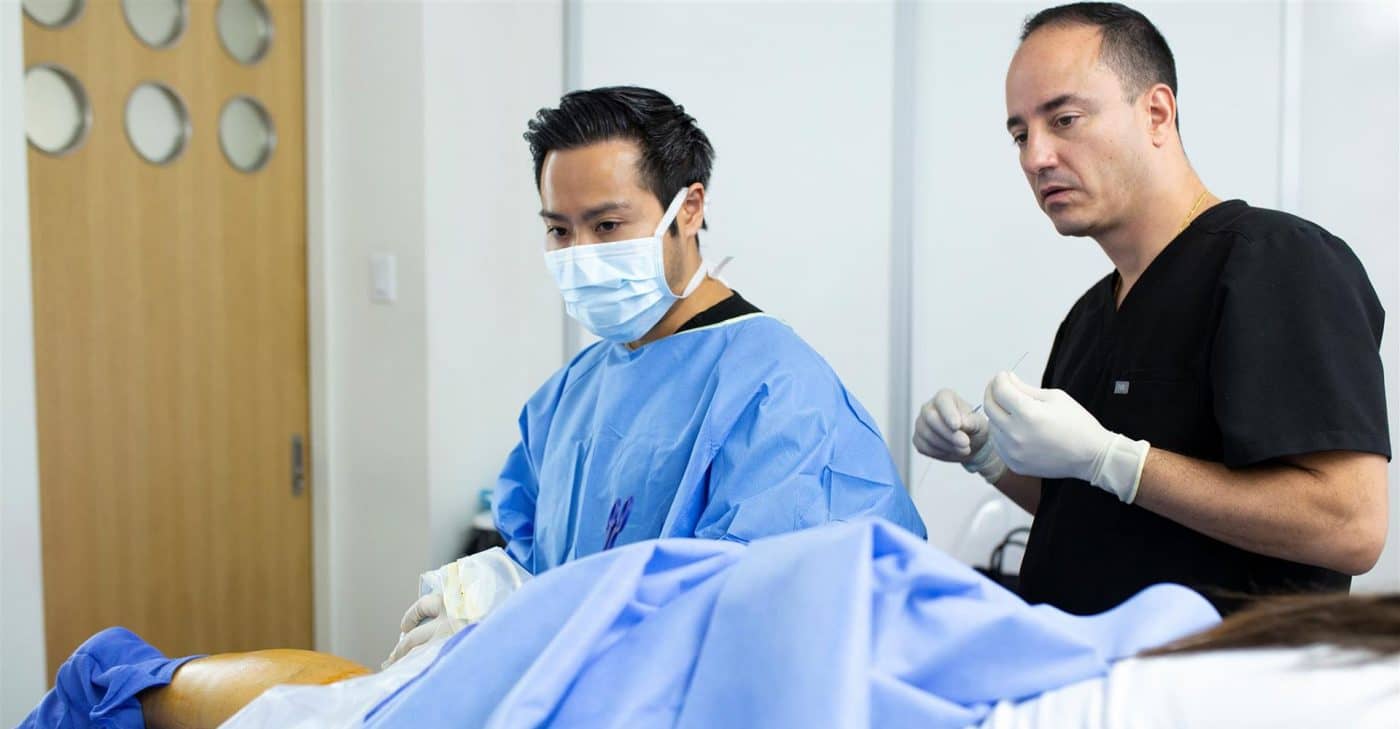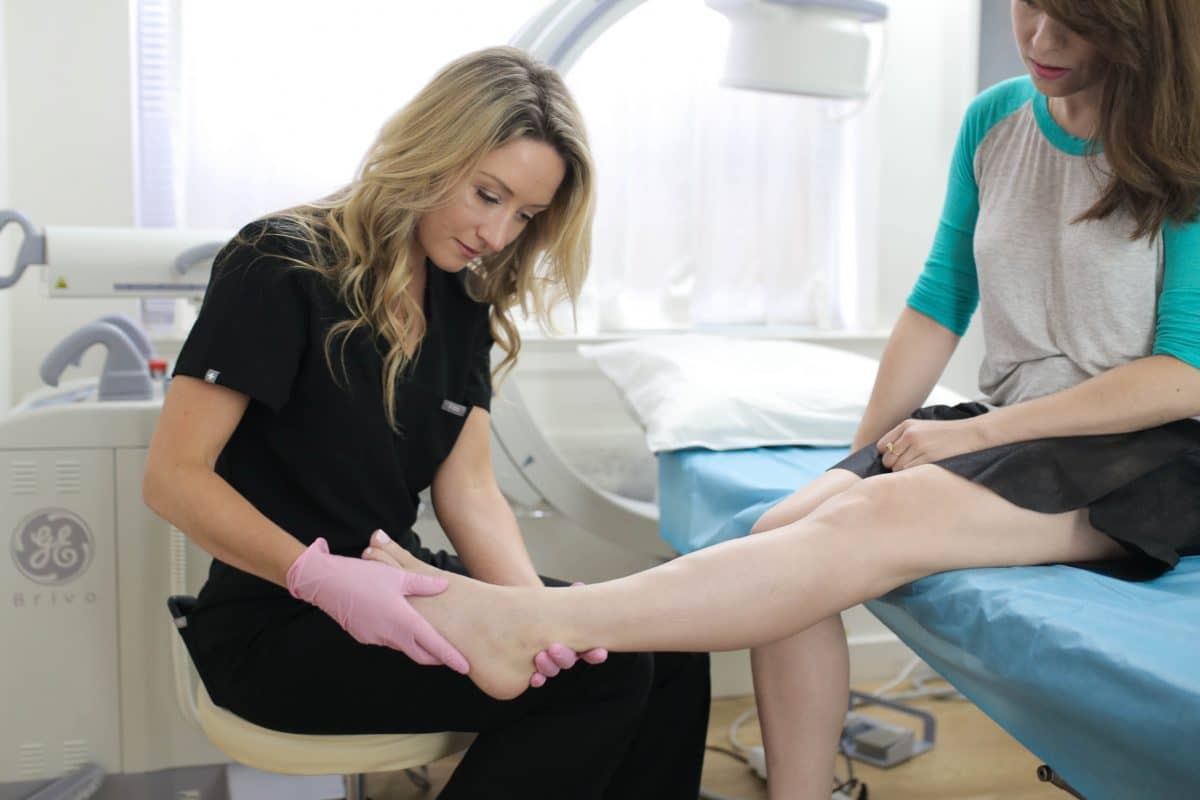If you go online, you see that there are several doctors out there offering their services to treat vein conditions such as varicose veins and spider veins. How many of them are true vein doctors, and how do you choose a genuine vein specialist doctor? Read on!
Does a vein specialist doctor need to be a vascular surgeon?
Most people with varicose veins wonder, ‘Do I need to find a vascular surgeon near me?’ Well, vascular surgeons undergo specialized, rigorous training in diagnosing and managing diseases of blood vessels. However, they are not the only specialty to be formally trained in managing vein problems. Doctors who undergo training in other interventional specialties – such as anesthesia, interventional radiology and cardiovascular medicine are equally capable of managing vein problems. Some vein doctors undergo supplementary training courses, and gain recognition from the American board of Venous and Lymphatic Medicine (ABVLM certification). This gives them the necessary knowledge and expertise to diagnose and manage vein diseases.

All the above doctors are capable of performing minimally invasive treatment procedures!
Vein treatment no longer requires invasive surgery. While no doubt effective, vein removal surgery requires advanced anesthesia, in-hospital stays, and a lengthy post-surgery recovery period. Today’s minimally invasive vein treatment procedures are equally effective and can be performed through a single skin puncture. There is no need for anesthesia or lengthy recovery periods. Minimally invasive treatment does not need to be performed by vascular surgeons – they can be performed by any medical doctor who has undergone thorough training in this area.

So, what do I need to look for in a vein specialist?
You should ideally choose a vein specialist with the following characteristics:
- Adequately trained in vein medicine: Your vein doctor should be board certified by the American Board of Medical Specialties. You can also look for an ABVLM certification – this would indicate that your vein doctor has adequate training in minimally invasive vein treatment.
- Several years of experience: The more years your vein doctor has been in practice, the more errors they are likely to have learned from – which would improve their skill.
- Focus on vein treatment: A doctor who dabbles in a lot of other subjects besides vein medicine may not be whole-hearted about the subject. It is best to choose a vein doctor who practices in an exclusive vein clinic; the focus will provide additional skill.
- Practices minimally invasive vein treatment: Although minimally invasive vein treatment is considered the best method for managing vein disease, many vein doctors have not adopted it simply because their clinics lack the resources to use it. Ensure that your chosen vein doctor recommends minimally invasive vein treatment as the first option.
- Believes in a patient-centric approach: Each patient has a unique medical history, family history and a unique comfort level. It is important that your vein doctor understands this, and does not try to fit all patients into the same treatment mould. Look for a vein doctor who consciously adopts a patient-centric approach.
- Is kind and approachable: This is as important as a patient-centric approach. You should not feel uncomfortable about asking questions, or hesitate to air your concerns to the vein doctor. Look at patient reviews to gauge the personality of the vein doctor you will be consulting with.
- Accepts most major insurance types: Minimally invasive vein treatment can be extremely expensive if you have to pay out of pocket. You will need to ensure that your vein doctor accepts the kind of insurance that you carry, so that out-of-pocket expenses are minimized.
What happens when I schedule a consultation with a vein specialist?
At your initial consultation, your vein physician will first chart out your medical history and your current health concerns. This is the best time for you to explain what exactly you need to fix, and what your treatment expectations are. The vein doctor will perform a detailed examination of your veins and may order an ultrasound to determine which of your leg veins are affected.
Based on your clinical examination and ultrasound, your vein doctor will work with you to determine the most comfortable and effective form of treatment. Minimally invasive vein treatment is an outpatient procedure, and you will only need to report on the day of your scheduled treatment. The entire procedure takes less than an hour, and you can leave immediately after! Your vein doctor may also schedule a follow-up appointment later to ensure that your veins are healing properly following treatment.
Vein Treatment Clinic: Consult with Nationally renowned vein specialists.
The Vein Treatment Clinic is a premier medical clinic that operates from several key locations across the United States. At VTC, we choose vein specialist doctors purely based on their merit. Therefore, you get to consult with some of the nation’s most renowned vein specialists, some of whom have actually pioneered the techniques used for minimally invasive vein treatment today.
Combined with our state of the art resources, you can be assured of the best quality spider and varicose vein treatment.
To learn more about our team of accomplished vein doctors, please visit https://www.veintreatmentclinic.com/vein-doctor. Our physicians are board-certified vein experts, with compassionate bedside manner and impressive resumes. Most of our vein doctors trained at Ivy-league schools, and our harvard-trained medical directors hand picked each physician. We collaborate frequently across all locations to make sure each patient receives the highest standard of care. Book an appointment and Visit our partner websites to learn about our vein specialists in New York, Long Island, New Jersey, Texas and California.









